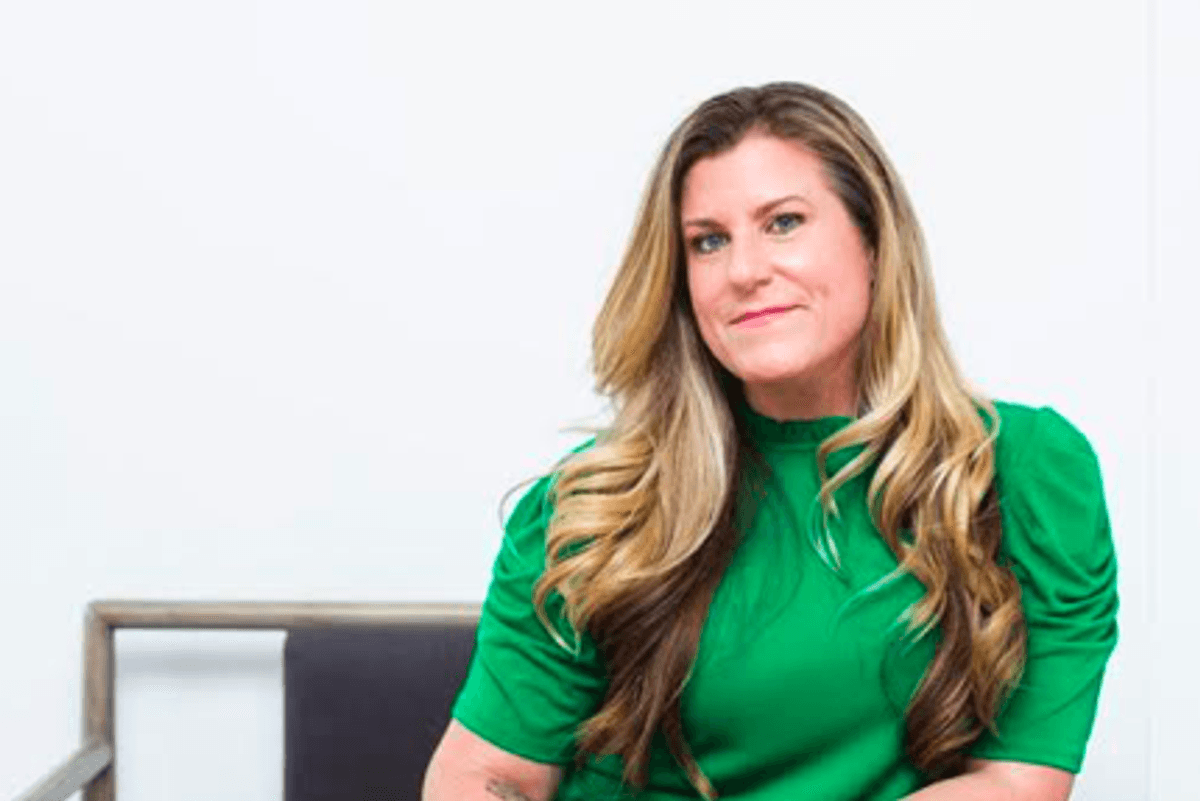I was raped when I was 12 years old and then twice more as a teenager.
Those experiences, combined with other personal traumas, led me to turn to alcohol, marijuana and eventually crack in an attempt to escape.
I tried to find control in self-harm, disordered eating and partying until I blacked out. I had so much pain dwelling inside me that I decided it was better to stay in denial — blacked out and unaware of my surroundings — than to look into that darkness.
In 1997, I watched my mother die after a long battle with cancer. By that time, I'd become a master packer of my emotions — I kept all my victimization and trauma locked inside the places I'd built for them. But my mother's death was one traumatic experience too many. My emotions spilled out in the form of a brutal suicide attempt.
When I woke up in the hospital the next day, I realized I needed serious help. The doctors recommended inpatient addiction treatment, and I agreed to go. The treatment center I went to was amazing, and I learned so much from the staff and other women there.
At the same time, it was not trauma-informed. During my intake, the providers asked if I'd ever been sexually assaulted, and I answered yes. That answer meant I was immediately assigned to the all-women's unit — nothing more and nothing less.
One night, as I listened to another patient share her story, I heard her say, "My secrets keep me sick." The truth of that statement hit me hard. I had walked into rehab with countless secrets: painful things that had happened to me, truths I'd known but couldn't share, thoughts so dark I couldn't imagine ever speaking them aloud.
Every time something bad happened, I would compartmentalize it inside my mind, body and spirit. Each secret had its proper place, and I kept them all under lock and key. After my mother's death, I learned there was only so much room in one person to contain that kind of suffering.
When I heard that woman say that her secrets kept her sick, I understood that for me to be successful, to live a full and happy life free from addiction and the constant desire to harm myself, I had to examine these secrets and unlock doors inside me that had been sealed for a very long time.
I was going to have to scrutinize the worst moments of my life.
That stay in rehab marked the beginning of my recovery process, but it wasn't nearly enough. For those of us suffering from both addiction and sexual trauma, we cannot treat only the addiction. After rehab, I started attending 12-Step meetings, which have been amazingly helpful. They help keep the fire of my addiction at bay.
But I realized that I could not layer 12-Step meetings, addiction treatment and sponsorship over my degree of pain. I also had to deal with the pain and trauma underlying the addiction. If I didn't address my trauma head-on, I would be putting a Band-Aid over a bullet hole and ignoring the root problem.
Sure, a Band-Aid will hold for a while — it may get you through days of picking up chips and celebrating a newfound life in recovery. But if the wound of trauma is still festering underneath, that Band-Aid will eventually fly off and lead to a relapse, which could be deadly.
This is why many people find themselves relapsing after years of addiction recovery.
Here is my fundamental belief about addiction recovery: To obtain long-term, sustainable recovery, we must get to the bottom of what motivates us to use. Why do we feel the need to punish ourselves? What are we running from? What is the underlying feeling? Is there one traumatic event in our history that led us to drink or use or harm ourselves? Was it a long history of abuse, harassment, hardship or marginalization? What is that thing that makes us want to pick up our drug of choice, even when everything seems to be going well? If left untreated, that thing could destroy everything for us.
Once I realized that my thing was not only rape but every other trauma that came before and after it, I knew what I had to do to heal the wound for good. I had to start unpacking my feelings, the painful events in my past and the facts about myself that burdened me with shame.
I could only do this with the help of a trauma-informed therapist. My therapist knew when to push me and when to help me be gentle on myself. She had years of experience working with trauma, and her specific training assisted me on my journey in a way that would not do more harm or force me so close to the edge that I would fail and use.
Recovery has taken me years, but the very understanding that I needed to do it has kept me moving down the path toward freedom from addiction. Working on strengthening my coping mechanisms and releasing the demons inside my heart have given me more freedom than I could have imagined. Each time I release some of the darkness inside me, I make room for the light, for the fulfillment of a new life and a deeper understanding of myself. That self-awareness has been one of my strongest tools in recovery.
I don't do this recovery thing perfectly every day. Trust me, I'm human. I make mistakes. But my recovery foundation is solid now. I built it myself, and I know every inch of it.
Now, when something traumatizing happens — because, let's face it, life brings hardships as well as joys — I don't have to deal with those old layers of trauma anymore. I can focus solely on the issues before me, and I have the tools to handle them in a healthy way.
Jennifer Storm is an award-winning victims' rights expert, advocate and best-selling author. Having worked on some of the most high-profile cases in history, she's often the first call media make when stories break on addiction, victimization and trauma. This essay is excerpted from Jennifer's new book, Awakening Blackout Girl: A Survivor's Guide to Healing From Addiction and Sexual Trauma. For more information visit jenniferstorm.com.
- What Is EMDR and How Can It Help Trauma Survivors? ›
- Memory Loss After Sexual Assault Is Real ›
- Good Sex with Emily Jamea: Healing After Sexual Assault ›
- I Recovered from Obesity and Bulimia Triggered by Sexual Abuse Once. And I Can Do It Again. ›
- What Is Sexual Assault? ›







